Rehab Guides for Addiction & Mental Health
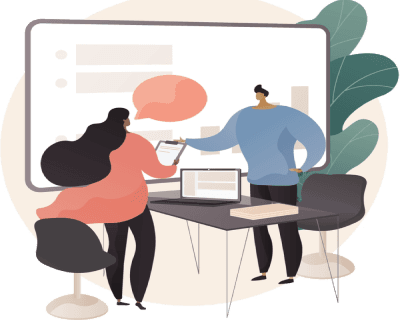
What is Rehab?
Rehab—short for rehabilitation—is defined by the World Health Organization (WHO) as “a set of interventions designed to optimize functioning and reduce disability in individuals with health conditions, in interaction with their environment.”1
In the context of addiction, rehab is a term used to describe various levels of treatment for substance use disorders (i.e., addiction to drugs or alcohol). Some rehabs require patients to live at the facility, while others visit the facility for several hours a week. In some cases, patients may receive telehealth treatment from home.2
The National Institute on Drug Abuse (NIDA) reports that there are more than 14,500 specialized drug rehab centers in the United States.3
Treatment in a rehab program aims to help someone quit using substances and remain in long-term recovery. Common treatment methods in rehab include behavioral therapy, medications for substance use disorder, peer support, and more.2
How Long Do Rehab Programs Last?
Typically detox can last between 5-7 days, while inpatient and residential programs can last between 30 to 90 days and beyond. Learn more about rehab by length of stay:
How to Find a Good Rehab Center
It’s important to do some research to ensure you pick a good treatment facility, as some may provide little more than drug education. Similarly, a detox only center is designed to help stabilize someone through withdrawal and, without continued treatment, does little to promote long-term recovery. Patients may also need screening and treatment for co-occurring disorders, which some rehab centers may not be equipped to provide.2
American Addiction Centers (AAC) operates multiple rehab facilities across the United States, each providing comprehensive and individualized evidence-based treatment. Admissions navigators at AAC can answer your questions and help you or your loved one start treatment today.
Why Do People Go to Rehab?
People may choose to attend rehab for a variety of reasons. Some common reasons people attend rehab are:
- They have reached rock bottom, and are looking for a change.
- They have strained relationships with people they love.
- Someone has suggested they have a problem with addiction.
- They have tried to quit unsuccessfully on their own.
- They have relapsed and need help getting sober again.
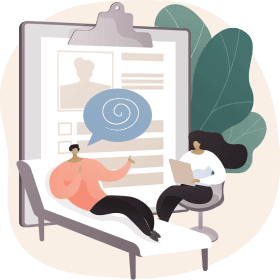
A Day in Residential Rehab
Patients in residential rehab benefit from a structured routine filled with therapeutic sessions and activities. While there is some personal time available between meals, activities, and therapy sessions, much of the day is planned out for patients.
Below is a sample of what one may expect during a day in one of our residential treatment centers:
- 7:00 a.m. Breakfast
- 7:45 a.m. Meditation
- 8:30 a.m. Physical Wellness Training
- 10:00 a.m. Behavioral Health Group
- 11:00 a.m. Relapse Prevention Group
- 12:00 p.m. Lunch and Reflection Time
- 1:00 p.m. Nutrition and Wellness Group
- 2:00 p.m. One-on-One Therapy
- 3:00 p.m. Expressive Therapies in Recovery
- 4:00 p.m. Therapeutic Community Group
- 5:00 p.m. Dinner
- 6:30 p.m. Recovery Meeting
- 7:30 p.m. Clean & Sober Structured Activities/Recreation
- 10:00 p.m. Lights Out
Most days at rehab will follow a similar schedule; however, different days often incorporate varying focuses in therapy and there may be special activities or events throughout the week that will alter the schedule. For example, special events may be held on family visitation days or a group of more seasoned clients may take an off-site visit for a particular type of therapy or activity.

What Types of Rehab Programs Are There?
Understanding your treatment options and seeking out that perfect treatment provider can be a time-consuming task, but your work is worthwhile. Types of programs may include one or a variety of the following:
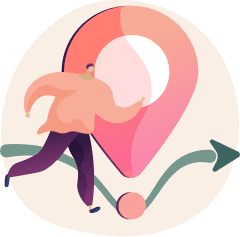
FAQs
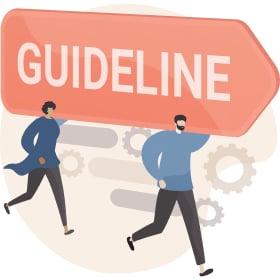
Paying for Rehab
What is the Cost of Rehab?
The cost of rehab may depend on many different factors. These include:
- Whether the patient has insurance and the extent of their coverage. Most insurers are required by law to cover addiction treatment and mental health services. However, the level of coverage will depend on the individual policy.8
- The type of treatment. Inpatient treatment will likely cost more than outpatient care, because lodging, food, and around-the-clock care will be included in these costs.
- State or government-funded treatment vs. private facilities. Treatment at a non-government (private) facility will likely cost more; however, government-funded facilities often have long waiting lists and the services provided may be more “bare-bones” than private facilities.
- Treatment duration.
What is Included in your Treatment Price?
A typical rehab program consists of several components, all of which may or may not be included within one treatment price. These may include:
- Medication management.
- Group counseling.
- Support services.
- Individual therapy sessions.
- Family therapy.
- Room and board (for inpatient or residential treatment).
- Amenities (e.g., access to fitness centers, pools, recreational activities).
While treatment can be expensive, unchecked addiction is often more costly. An analysis in Forbes suggests, for example, that a person living at the poverty level could expect to spend up to half of every dollar of income on the addiction. That leaves little funds available for other vital expenses, including food or housing.12
How Do I Pay For Addiction Treatment?
There are several ways to pay for addiction treatment. Common forms of payment include:
- Insurance coverage.
- Credit or debit cards.
- Personal loans.
In most cases, families and their loved ones in need of treatment of addiction will begin by determining which treatment services and programs will be covered by their health insurance policy and what costs will be associated with treatment.
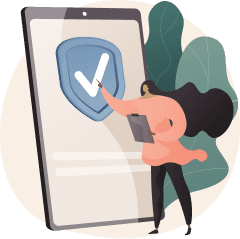
AAC Admission Process
From the initial call made by a prospective client or family member to American Addiction Centers, the process of determining insurance coverage and admitting the person to one of our facilities generally takes only 24-48 hours.
Once admitted, all pertinent financial documents and admission paperwork will be explained and then signed at the facility.
AAC has multiple locations across the country that provide various levels of treatment that are individualized to meet each patient’s needs. In addition to the levels of care listed discussed above, many of our facilities offer specialized treatment tracks for specific demographics such as:
- Veterans.
- First responders.
- LGBTQ+.
- Impaired professionals.
- Young adults.
Call a compassionate admissions navigator to verify your insurance and start treatment today.
Find Drug & Alcohol Rehab Treatment Near You